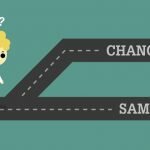Human factors: how to avoid a content strategy plane crash, by Julian Murfitt
 If you prepare well, disasters can be avoided.
If you prepare well, disasters can be avoided.
- 1 in 10,000,000 chance of a fatality by plane crash.
- 26% of plane accidents in the last 10 years are caused by equipment failure
- 57% of plane accidents in the last 10 years are caused by human factors
- Assuming you have
- A content strategy
- A DITA implementation
- You are less likely to fail
- 70% of software project fail, due to
- Inadequate requirements gathering (human factors)
- Failure to engage users/stakeholders (human factors)
- Scope creep
- Lack of adequate systems
What makes for a good disaster plan?
- Compatible with human capabilities
- Tolerates and recovers from human error
- Makes use of the intelligence of the human brain
- It needs to fit our mental model
- If the mental model doesn’t fit the outside world, we don’t comprehend
DITA is a challenge
- Moving to DITA is a metamorphosis, not a migration
- DITA implementation is not a tool swap, it’s a different way of thinking
There are 3 types of long-term memory
- Semantic memory
- Recognition is easier than recall
- We’ll recognize something once we’ve seen it before, but can’t necessarily call it up
- The DITA Shell requires semantic memory
- Episodic memory
- Episodic is about connecting things with stories
- Learning fewer things in one session is easier – episodic memory is best when focused
- When learning DITA, the same thing applies
- Motor memory
- Four steps: Unconscious incompetence (don’t know what you don’t know)
- Conscious incompetence (know what you don’t know)
- Conscious competence (know what you know)
- Unconscious competence (don’t know what you know)
- Examples: using a mouse, driving a car
Think/feel/know: the team
- Some people think through decisions, some feel their decisions, some just “know”
- It’s important to know who on a team is each of these
- As we’re learning DITA we need to learn new techniques, and take on new roles
- Tech authors in DITA can be all sorts
- Developers
- Engineers
- Journalists
- Content strategists
- Content marketers
- We need to let people develop their roles and get a sense of ownership for their work
- We also need specialists who can help the rest of the team
- Need to train the team at the right time
- Too early, and they won’t have context
- Too late, and they won’t understand what they’re doing
- DITA needs more than a course, it needs ongoing coaching


